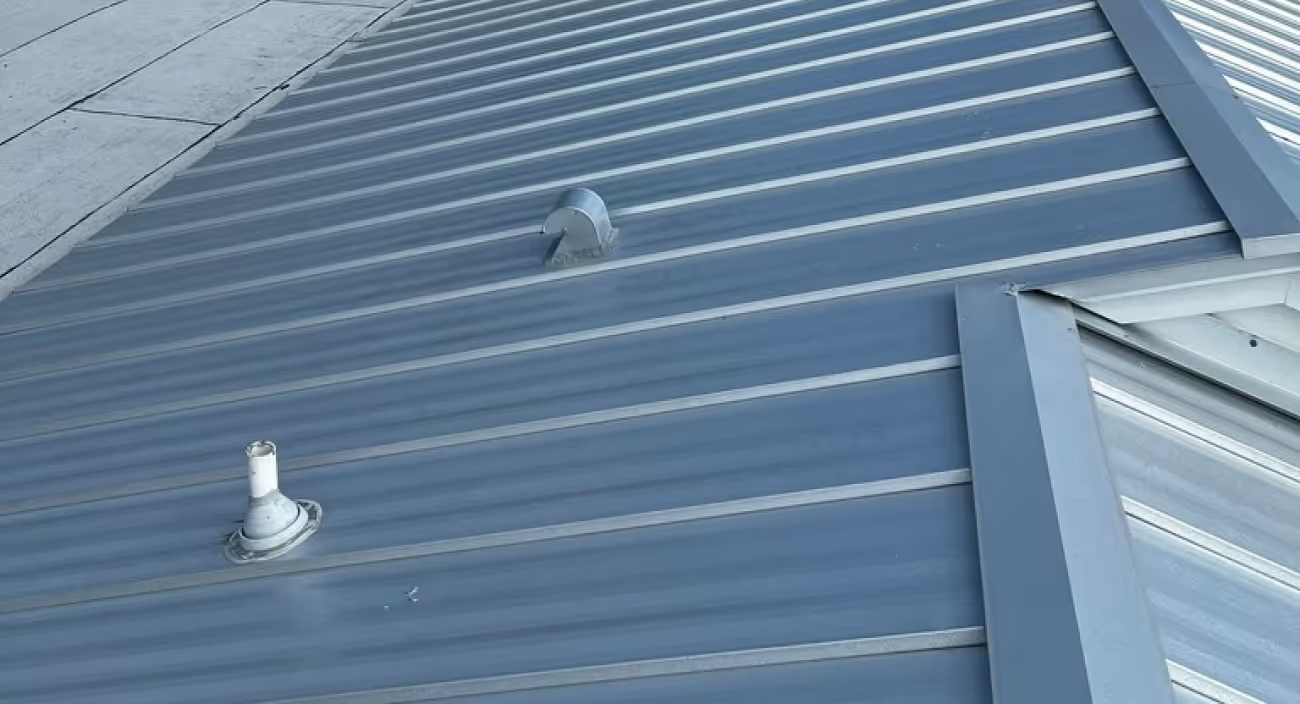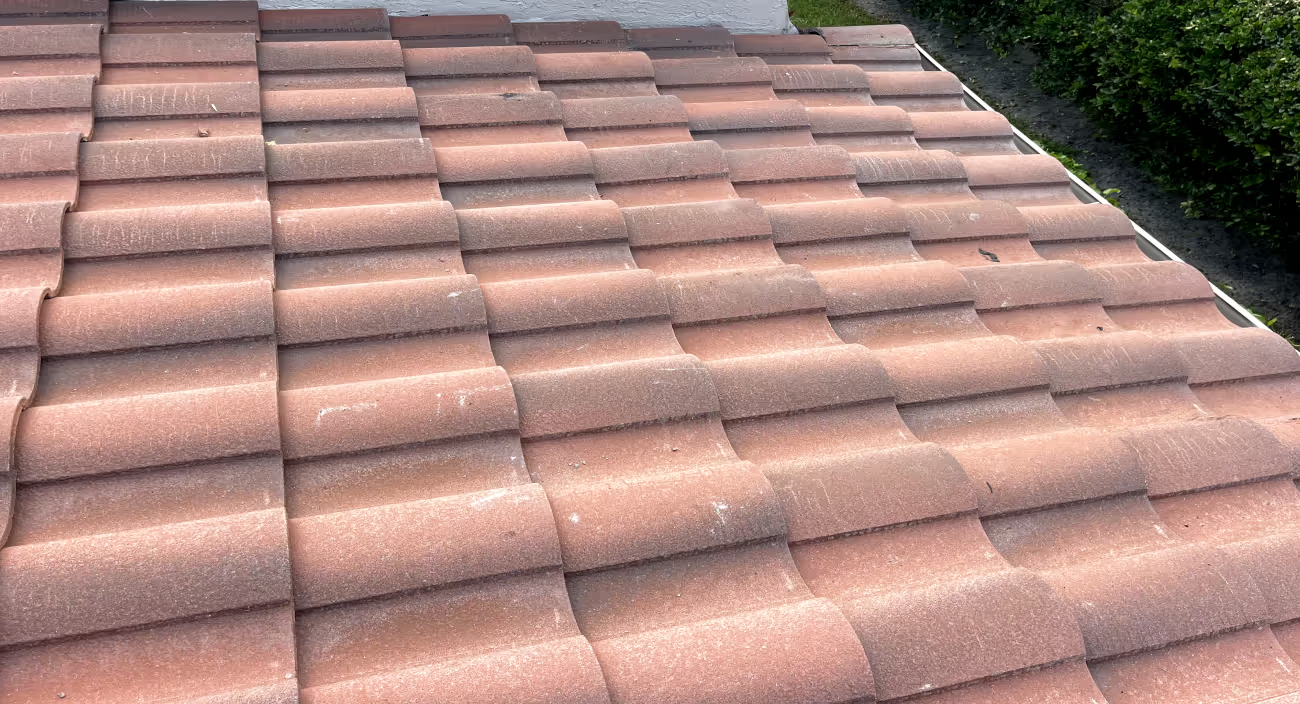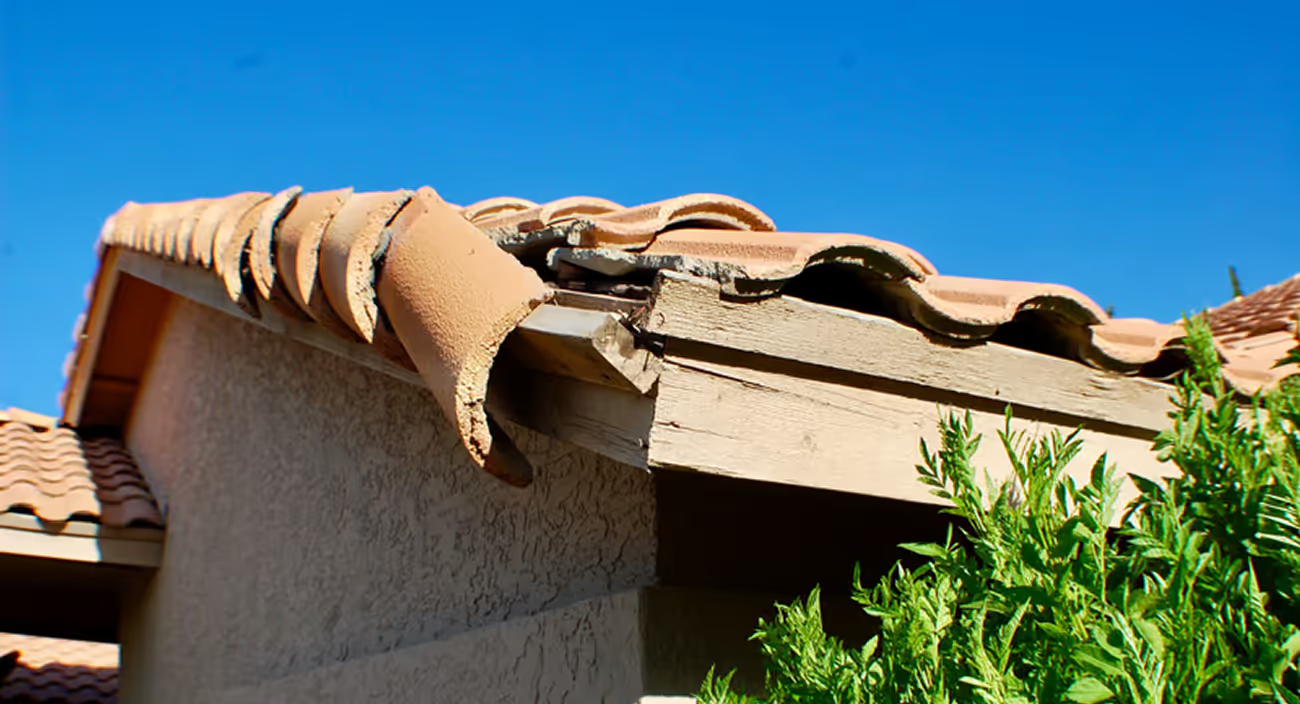
When a hurricane, severe storm, or unexpected event damages your roof in Jupiter, FL, knowing how to navigate the insurance claims process can mean the difference between a smooth replacement and a frustrating, underpaid nightmare. The claims process can be complex, intimidating, and fraught with opportunities for mistakes that could cost you thousands of dollars.
Unfortunately, many Jupiter homeowners discover too late that they've missed critical steps, failed to document damage properly, or accepted settlements far below what their policy actually covers. Insurance companies are businesses focused on minimizing payouts, and while most operate ethically, the burden falls on you to prove your claim and advocate for fair compensation.
This comprehensive guide walks you through every stage of filing an insurance claim for roof damage in Jupiter, FL, from the moment damage occurs through final settlement. Whether you're dealing with hurricane damage, fallen trees, or other covered perils, these insights will help you protect your rights and maximize your insurance benefits for roof replacement in Jupiter.
Understanding Your Policy Before Damage Occurs
The worst time to read your homeowners insurance policy for the first time is after damage has already occurred. Being familiar with your coverage, exclusions, and obligations before you need to file a claim gives you a significant advantage.
Key Policy Elements to Review:
Coverage Type: Determine whether you have replacement cost coverage (pays for new roof regardless of age) or actual cash value coverage (pays depreciated value based on roof age). This distinction can mean a difference of tens of thousands of dollars on a claim.
Deductibles: Know both your standard deductible and your hurricane deductible. In Jupiter, hurricane deductibles are typically 2-10% of your home's insured value, not a flat dollar amount. For a home insured at $400,000 with a 5% hurricane deductible, you'd pay $20,000 out of pocket.
Named Storm vs. Hurricane Coverage: Understand when each deductible applies. Hurricane deductibles typically trigger when the National Hurricane Center issues a hurricane warning for your area, while standard deductibles apply to other wind and storm damage.
Coverage Limits: Verify that your dwelling coverage adequately covers the full replacement cost of your home, including the roof. Underinsurance becomes apparent only when you file a claim and discover your policy maxes out below actual repair costs.
Exclusions and Limitations: Know what's not covered. Most policies exclude damage from lack of maintenance, wear and tear, mold, and pre-existing conditions. If your roof is over 15 years old, you may have reduced coverage or higher scrutiny during the claims process.
Filing Deadlines: While Florida law requires insurers to accept claims filed within specific timeframes, your policy may have stricter requirements. Review the notification requirements—most require "prompt" or "immediate" notification of loss.
Keep a copy of your policy declarations page easily accessible, along with your agent's contact information and the claims phone number. When disaster strikes, you won't have time to search through files.
Immediate Steps After Roof Damage
The actions you take in the first hours and days after roof damage can significantly impact your claim outcome. Here's exactly what to do:
Document Everything Immediately
Before touching anything or making repairs, thoroughly document the damage. Use your smartphone to take photos and videos from multiple angles, capturing:
- Overall roof condition from ground level (all sides of house)
- Close-up shots of specific damage (missing shingles, dents, cracks)
- Interior damage (water stains, leaks, damaged ceilings or walls)
- Damaged or fallen debris (tree limbs, shingles in yard)
- Date and time stamps (most phones automatically embed this)
Take more photos than you think necessary. Insurance adjusters want extensive documentation, and you can't recreate conditions days later when they've changed.
If safe to do so, take photos from your attic showing any water intrusion, damaged decking, or compromised insulation. However, never climb onto a damaged roof yourself—the safety risk isn't worth it.
Mitigate Further Damage
Florida law and your insurance policy require you to take reasonable steps to prevent additional damage after a loss. This is called your "duty to mitigate." Failure to mitigate can result in denial of secondary damage claims.
Appropriate mitigation steps include:
- Covering holes or damaged areas with tarps
- Placing buckets under active leaks
- Moving valuables away from leak areas
- Boarding up compromised areas
Keep all receipts for materials and labor used in mitigation. These expenses are typically reimbursable under your policy, often without being subject to your deductible.
What you should NOT do: Don't make permanent repairs or sign contracts for full roof replacement before the insurance adjuster inspects the damage. Doing so can jeopardize your claim entirely.
Contact Your Insurance Company Immediately
Call your insurance company's claims line as soon as possible after discovering damage, ideally within 24-48 hours. The contact number should be on your policy declarations page or insurance card.
When calling, you'll need to provide:
- Your policy number
- Date and approximate time damage occurred
- Description of damage
- Your contact information
- Whether anyone was injured
The insurer will assign a claim number and schedule an adjuster inspection. Get the claim number in writing via email or text, and note the name of the person you spoke with.
Important: Be factual but don't minimize damage or speculate about causes. Simply report what happened and what's damaged. You'll provide details to the adjuster during inspection.
Working with Insurance Adjusters
The insurance adjuster's inspection is the most critical moment in your claims process. How you prepare for and handle this interaction largely determines your settlement amount.
Preparing for the Adjuster's Visit
Before the adjuster arrives, take these steps to strengthen your claim:
Hire a Professional Inspection: Have a reputable Jupiter roofing contractor inspect your roof before the adjuster's visit. Companies like Talbot Companies provide detailed assessments identifying all damage, including issues an adjuster might overlook. This independent inspection creates a baseline for comparison.
Compile Documentation: Organize all photos, videos, receipts for mitigation, and any maintenance records showing you've properly cared for your roof. This documentation demonstrates you're a responsible homeowner and strengthens your credibility.
Know Your Roof's History: Have information ready about your roof's age, last replacement date, previous repairs, and material type. If you've made upgrades or improvements, document those as well.
Review Building Codes: Understand that if your roof requires replacement, current Florida building codes may mandate upgrades that didn't exist when your roof was originally installed. Your policy should cover code-compliant replacement, not just replicating the old system.
During the Adjuster Inspection
Be present during the adjuster's inspection. Your participation ensures nothing is missed and creates an opportunity to advocate for your claim:
Be Cooperative but Thorough: Adjusters are professionals doing their job, so maintain a respectful, cooperative attitude. However, don't defer entirely to their expertise. Point out all damage you've identified.
Have Your Contractor Present: If possible, have your roofing contractor attend the inspection. They can speak the technical language adjusters understand, identify damage the adjuster might miss, and ensure all affected areas are documented.
Take Notes: Write down what the adjuster says, what areas they inspect, and any concerns they raise. Note their name, company (many insurers use third-party adjusting firms), and estimate of when you'll receive the initial report.
Ask Questions: Don't be afraid to ask why certain damage isn't being included or how they arrived at specific figures. Request clarification on anything unclear.
Point Out Interior Damage: If roof leaks have damaged ceilings, walls, insulation, or belongings, ensure the adjuster documents this. Interior damage is part of your claim but is sometimes overlooked if not specifically mentioned.
Don't Sign Anything: Unless it's a simple acknowledgment that the inspection occurred, don't sign documents at the inspection. You need time to review estimates and compare them against independent assessments.
Understanding the Adjuster's Report
After inspection, the adjuster will provide an estimate detailing:
- Scope of repairs needed
- Material costs
- Labor costs
- Total estimated settlement
- Deductible amount
- Any depreciation (for ACV policies)
Review this estimate carefully against your contractor's assessment. Significant discrepancies often occur in:
- Scope creep: Adjuster missed damaged areas
- Material quality: Adjuster specified lower-grade materials
- Square footage: Undercalculated roof size or damage extent
- Labor rates: Used outdated or unrealistically low rates
- Permit and code costs: Omitted required upgrades
If the estimate seems low, don't accept it as final. You have the right to negotiate.
Common Claim Mistakes to Avoid
Jupiter homeowners frequently make these errors that reduce their settlements or result in claim denials:
Delaying Claim Filing: Waiting weeks or months to report damage raises red flags with insurers. They may question whether damage occurred during the event you're claiming or afterward. File promptly even if you're unsure about proceeding with repairs.
Not Reading the Policy: Assuming you know what's covered without actually reading your policy leads to surprises. Take an hour to review your coverage before you need it.
Accepting the First Offer Without Question: Insurance adjusters sometimes provide lowball initial estimates, expecting negotiation. Always get independent contractor estimates for comparison.
Making Permanent Repairs Before Inspection: Signing a contract and replacing your roof before the adjuster sees damage can void your claim. The insurer has a right to inspect and verify damage before you alter the scene.
Failing to Document Properly: Inadequate photos, no written damage descriptions, or missing receipts for mitigation expenses weaken your case and make disputes harder to win.
Exaggerating or Lying: Never fabricate or exaggerate damage. Insurance fraud is illegal and will result in claim denial and potential prosecution. Stick to facts and let legitimate damage speak for itself.
Not Following Up: Assuming the insurance company will proactively keep you informed is naive. You must follow up regularly, track deadlines, and push for resolution. Squeaky wheels get attention.
Missing Deadlines: Florida has specific timeframes for various claim actions. Missing deadlines can forfeit your rights to appeal or dispute.
Trusting Damage is Minor Without Expert Assessment: What looks like a few missing shingles from the ground may involve extensive underlayment damage, decking issues, or structural concerns. Always get professional inspection.
Not Preserving Evidence: Throwing away damaged materials before the claim is settled can hurt your case. Keep samples of damaged shingles, materials, or components until the claim is resolved.
Disputing Low Settlements or Denials
If your claim is denied or the settlement offer is inadequate, you have several options to fight back:
Request Re-Inspection
If you believe damage was missed or underestimated, request a second inspection. Provide your contractor's detailed estimate highlighting specific discrepancies. Insurers often adjust estimates when presented with compelling evidence they overlooked damage.
Invoke Appraisal Clause
Most Florida homeowners policies include an "appraisal clause" that provides a dispute resolution mechanism. If you and the insurer disagree on the amount of loss, either party can demand appraisal. Each side hires an appraiser, and if they can't agree, a neutral umpire makes the final determination. This is typically faster and less expensive than litigation.
Hire a Public Adjuster
Public adjusters work for you, not the insurance company, handling your claim from start to finish. They typically charge 10-20% of the settlement but often secure substantially higher payouts. For complex or large claims, their expertise can be invaluable.
Public adjusters are especially useful when:
- Your claim was denied and you believe it should be covered
- The settlement is far below contractor estimates
- You're too busy or overwhelmed to manage the process
- The insurer is dragging out the process unreasonably
Ensure any public adjuster you hire is licensed in Florida and has good reviews and references.
File a Complaint with Florida Department of Financial Services
If your insurer is acting in bad faith—unreasonably delaying, denying valid claims, or failing to communicate—file a complaint with the Florida Division of Consumer Services. While this doesn't directly resolve your claim, it creates a record and prompts regulatory review of the insurer's practices.
Consult an Insurance Attorney
For significant disputes, high-value claims, or clear bad faith situations, consulting an attorney who specializes in insurance claims may be appropriate. Many work on contingency (paid only if you win), making legal action accessible even without upfront funds.
Florida's bad faith laws protect homeowners from insurers who unreasonably deny or undervalue claims. Attorneys can leverage these protections to negotiate better settlements or pursue litigation if necessary.
Maximizing Your Settlement
Beyond avoiding mistakes, proactive strategies can increase your claim payout:
Get Multiple Contractor Estimates: Having 2-3 detailed written estimates from licensed Jupiter contractors strengthens your negotiating position. If all three estimate $25,000 and the adjuster offers $15,000, the discrepancy is harder to justify.
Document Pre-Existing Conditions: If you have photos of your roof before the damage occurred, they're invaluable for proving new damage vs. old conditions. Take photos of your roof during good weather and save them for exactly this purpose.
Understand Recoverable Depreciation: If you have actual cash value coverage, you typically receive initial payment minus depreciation, then recover the depreciation after completing repairs. Make sure you understand this process and follow up to collect full payment.
Include All Damages: Don't focus solely on the roof. Include damaged gutters, fascia, soffits, skylights, interior water damage, and any other affected components. Many homeowners forget these items and leave money on the table.
Request Written Explanations for Denials: If any damage is excluded from your settlement, demand written explanation of why. This creates accountability and provides grounds for appeal if the reasoning is flawed.
Use Hurricane Mitigation Credits: If replacing your roof, consider upgraded materials (impact-resistant shingles, enhanced attachment methods) that qualify for insurance discounts. Some insurers will cover upgrade costs if you commit to keeping your policy, as the improvements reduce their risk.
Be Patient but Persistent: Don't accept rushed lowball offers to close your claim quickly. Take time to review estimates carefully, but also don't let the claim languish. Follow up weekly if you haven't heard back within promised timeframes.
Know When to Compromise: While you should fight for fair compensation, also recognize when a settlement is reasonable even if slightly below your ideal. Legal battles and extended disputes have costs—financial and emotional—so sometimes accepting a fair offer is smarter than chasing perfection.
Working with Roofing Contractors During Claims
Choosing the right contractor makes a substantial difference in claim outcomes. Here's how to work effectively with roofing professionals during the insurance process:
Hire Experience with Insurance Claims: Not all contractors are equally skilled at working with insurance claims. Choose a company with extensive claims experience, like Talbot Companies in Jupiter, FL, who understand what adjusters look for and how to document damage comprehensively.
Get Detailed Written Estimates: Your contractor's estimate should itemize every component: materials (with brands and grades), labor, permits, disposal, and any necessary upgrades. Vague estimates lack credibility with adjusters.
Avoid "We'll Work with Your Insurance" Guarantees: Be cautious of contractors who promise to "handle everything" or guarantee they'll get the insurance company to pay. No contractor can make that promise. What they should offer is expertise in documentation and communication.
Don't Sign Assignment of Benefits (AOB) Lightly: Some contractors request AOB, which assigns your insurance benefits directly to them. While sometimes appropriate, AOBs can complicate claims and reduce your control. Understand the implications before signing.
Verify Licensing and Insurance: Ensure your contractor is properly licensed in Florida and carries adequate liability and workers' compensation insurance. If an uninsured worker is injured on your property, you could be liable.
Get Everything in Writing: Contract should specify materials, timeline, payment schedule, warranty terms, and who handles permit acquisition. Verbal promises aren't enforceable.
Pay Only for Work Completed: Never pay the full amount upfront. Typical payment schedules involve a modest deposit (10-25%), progress payments tied to completed milestones, and final payment upon your satisfaction and inspection approval.
Expect Contractor to Be Present at Inspection: Reputable contractors will offer to attend the adjuster inspection at no charge. This is standard service that demonstrates their investment in proper claim handling.
Special Considerations for Jupiter Homeowners
Jupiter's unique characteristics create specific considerations for roof damage claims:
Hurricane Deductible Triggers: The hurricane deductible applies when the National Hurricane Center issues a hurricane warning for Palm Beach County. If damage occurs during a tropical storm before it's classified as a hurricane, your standard deductible may apply instead—a potential difference of thousands of dollars. Document timing carefully.
Saltwater Corrosion Claims: Jupiter's coastal location exposes roofs to salt air that accelerates deterioration. However, this gradual corrosion isn't covered as it's not sudden and accidental. Be prepared for adjusters to scrutinize whether damage is truly storm-related or simply accelerated aging.
Wind vs. Water Damage: In coastal areas, distinguishing between wind and water damage matters significantly. Wind damage is typically covered under homeowners policies, while flood damage requires separate flood insurance. If storm surge damages your roof, the distinction becomes critical.
HOA Requirements: Many Jupiter communities have HOA architectural restrictions on roofing materials and colors. Ensure your insurance settlement covers HOA-compliant materials, not just the cheapest option. Get HOA approval before proceeding with roof replacement in Jupiter.
Permitting and Code Upgrades: Jupiter and Palm Beach County have strict building codes, especially post-Andrew. Current code requirements may mandate upgrades beyond simply replacing like-for-like. Your policy should cover code-compliant replacement, but verify this is reflected in your settlement.
Impact-Resistant Requirements: Some insurers require impact-resistant roofing materials for continued coverage or to avoid surcharges. If replacing your roof via claim, clarify whether meeting these standards is mandatory for policy renewal.
Conclusion
Navigating an insurance claim for roof damage in Jupiter, FL requires knowledge, preparation, and persistence. While the process can be complex and occasionally frustrating, understanding your rights and following proper procedures significantly increases your chances of fair compensation.
Remember the key principles: document everything immediately, file promptly, get professional assessments, be present during adjuster inspections, review estimates carefully, and don't accept inadequate settlements without pushing back. Your insurance policy is a contract you've paid for—you're entitled to the benefits it provides.
When you're ready to file a claim or need expert assistance assessing roof damage, working with an experienced local contractor makes all the difference. Talbot Companies has helped Jupiter, FL homeowners navigate the insurance claims process for over 54 years. We provide thorough damage assessments, attend adjuster inspections, and advocate for our customers to ensure they receive fair settlements for residential roof replacements.
Contact us today for a comprehensive roof inspection and honest assessment of your insurance claim options. Because protecting your Jupiter home starts with knowing your rights and having experienced professionals in your corner.

.svg)
.svg)
.svg)
.avif)
.svg)
.avif)
.avif)

.avif)



.avif)

